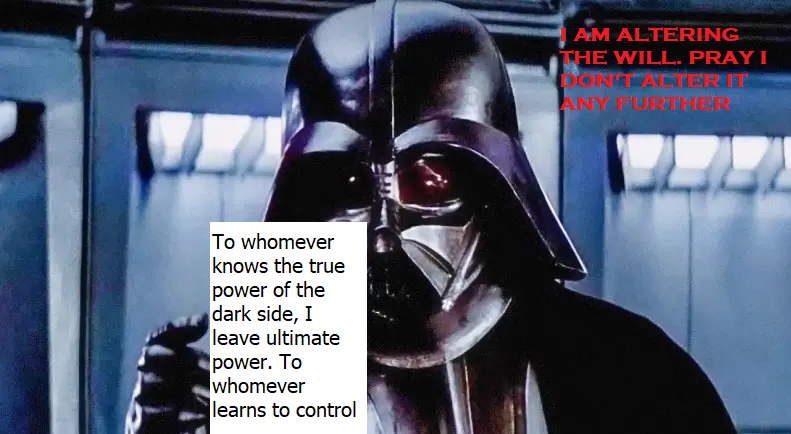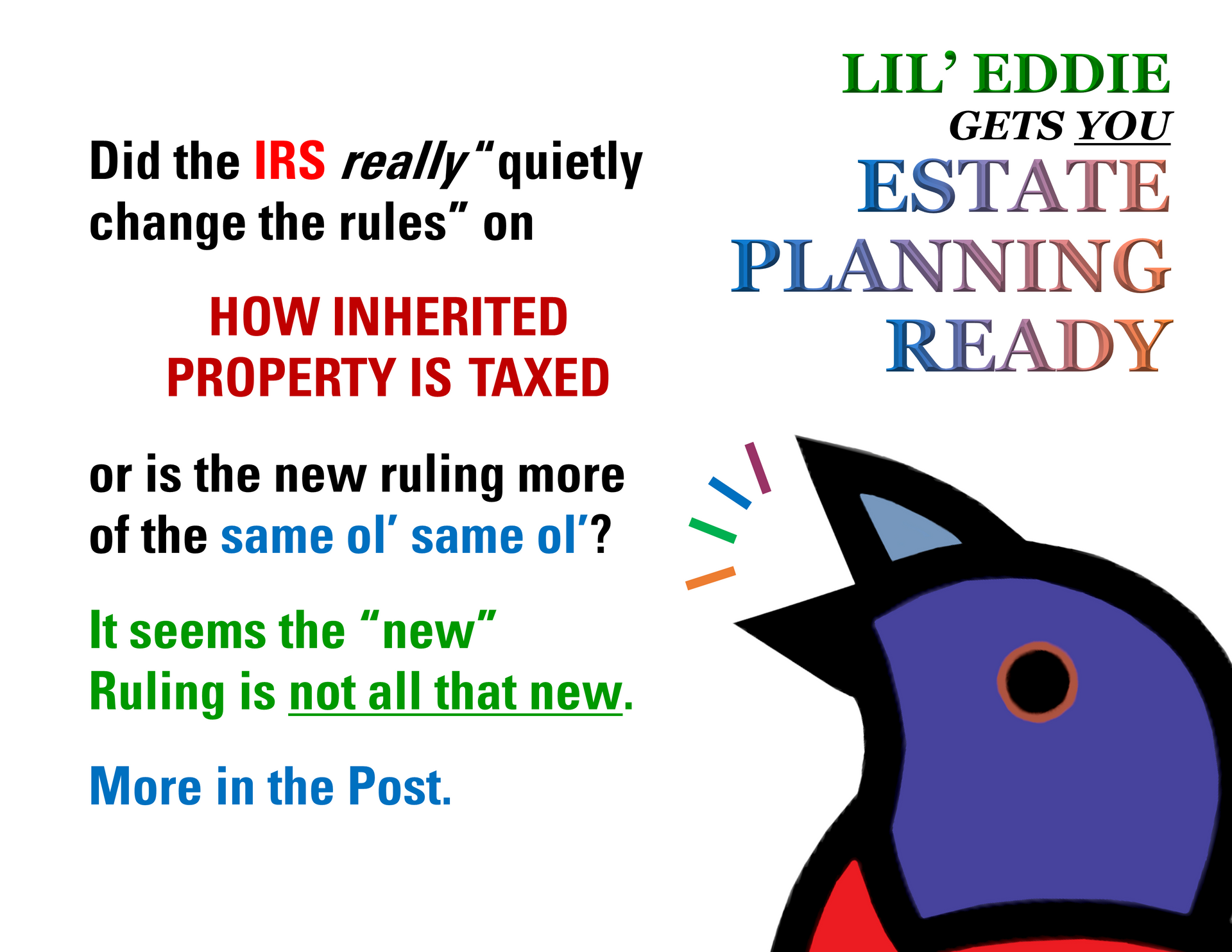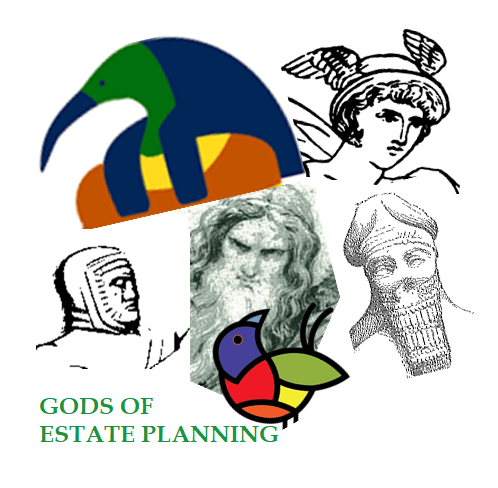The Estate of Darth Vader: Episode I - The Estate of the Sith Lord
We've all thought about it. When we’re watching the greatest cultural accomplishment of the last 200,000 years, one persistent thought gnaws at us all: what are the particulars of Darth Vader’s estate plan?
For those of you unfamiliar with the character, Darth Vader is the wealthy father of two precocious twins. Unfortunately, he’s been away from his children for most of their lives because of a religious calling. We spend precious little time on Darth Vader’s estate planning goals, and after becoming one with the Force it is unclear what happens to his assets or if he even had an estate plan (can you imagine?)
Estate planning fans, we must opine on several aspects of Darth Vader’s assets, family, and religious order to determine the intricacies of his estate plan. Really this ought to be presented in a miniseries, but Disney has not responded to any of the scripts I’ve sent featuring a rugged Bounty Hunter / Attorney administering Darth Vader’s estate.
Instead, Ed Lowe Law will bring us on a written journey of discovery in a series of blog posts, wherein we will learn much about a topic that touches us all, from the mightiest Sith Lord to the lowliest Nutmegger: estate planning.

What is an Estate?
Before anyone starts on their estate planning journey, they must first ask themselves:
"What is my estate?"
An estate is everything you own! Real estate, vehicles, bank accounts, insurance policies, jewelry, retirement accounts, the list goes on and on. If you own it, it's part of your estate and your estate continues on after you die.
"What do I own?"
Ownership is the legal right to (1) possess, (2) use, and (3) give away that property. This means the assets you rent or lease from someone else are not owned by you, because you don’t have the right to give that asset away away. Once you know what you own, you know what your estate looks like. Any asset you own is part of your estate.
If an asset is part of your estate, you get the benefit of deciding who gets it. Unfortunately, the larger your gross estate, the larger your taxes and administrative fees. Administrative fees can take anywhere from 3% to 6% of the gross assets of the estate before taxes are even levied, as we discovered in The Estate of Darth Vader: Episode II - The Order of Payment.
Estate taxes at least have the benefit of exempting a large chunk of the estate from taxation. As of 2023, for both Connecticut and Federal estate tax, the first $12.92 million in the estate is exempted from estate tax. Any amount over $12.92 million is taxed between 12% to 52%.
What is Darth Vader's Estate?
Darth Vader certainly uses and possesses many impressive assets. Does he have the right to give them away though? If he does, those assets are includable as part of his estate.
Darth Vader wanted for nothing as both a Sith Lord and the Galactic Empire’s Supreme Commander of the Imperial Forces. The most advanced star fighters, the most luxurious lava castles, and the best bacta tanks money can buy are all his. He is perhaps one of the richest individuals in the galaxy, but his circumstances are very unique. Are these assets truly owned by Darth Vader, or are they owned by the Galactic Empire or the Sith religious order? His balmy residence at Fortress Vader alone is worth billions, but it is also an important site for his Sith religion. Darth Vader may use and possess Fortress Vader, but can he dispose of it unilaterally? Could he give Fortress Vader to the Jedi, or do laws of the Sith determine where it ends up? The right to determine where things end up is called a "power of appointment," and it is an important estate planning tool for virtually every planner.
Darth Vader has a potentially massive estate. Darth Vader may not want it to appear that he has a large gross estate, especially if it would gross more the $12.92 million. Wouldn’t it be convenient from a tax perspective if it was determined Darth Vader did not own certain assets, but rather his tax-exempt religious order? Would Darth Vader's estate have benefited by gifting assets to his beneficiaries while he was alive to reduce his total estate size, and thus save on estate taxes in the long run? As of 2023, he could gift up to $17,000 per year, per beneficiary without filing any gift tax returns with Connecticut or the Federal government, but it's too late for that type of planning now because Darth Vader is dead. Anakin Skywalker killed him when he chose his love for his son over his fear of his evil master, Darth Sidious.
You, dear reader, are alive unlike Darth Vader. This means you still have the opportunity to put your affairs in order to ensure all of your goals are met, and thus bring balance to the Force.
Be sure to check out:
The Estate of Darth Vader: Episode II - The Order of Payment
The Estate of Darth Vader: Episode III – The Intestate Menace

Quick Links
Services
Get in Touch
Phone: 203-951-5435
Address: 1480 Boston Post Rd, Old Saybrook, CT 06475, United States of America
All Rights Reserved | Ed Lowe Law, LLC




